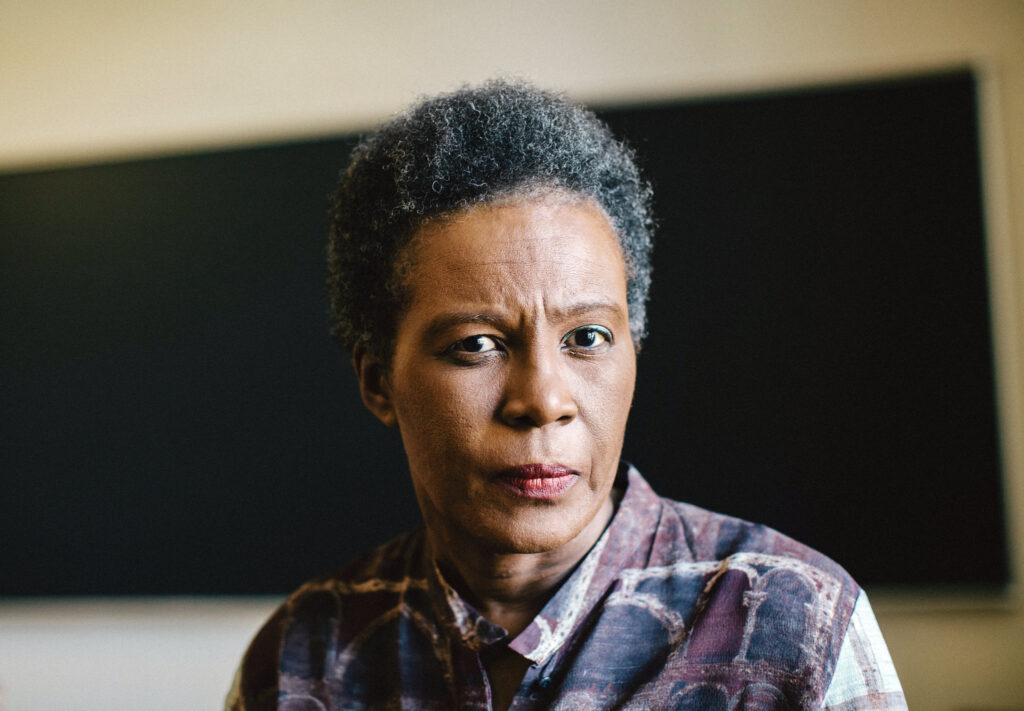
Claudia Rankine is a Jamaican – American Poet. She has authored six collections of poetry, three plays, and multiple video works. She is a co-founder of the Racial Imaginary Institute. She is currently employed at Yale University as the Fredrick Iseman Professor of Poetry. Rankins works center on boundaries be they boundaries regarding identity, isolation, mental illness, economics, and modern business. Her works pose to her readers questions about what founds their lives, and what can be gained or discovered by understanding the identity and boundaries that make on individual who they are. Her works are largely considered to be lyric poetry, but often include other media forms in order to communicate to her audiences. This has been critically noted as revolutionary expression within lyric poetry. Examples of this can be seen in many of her collections with the use of photographs in order, or in recurring images such as in Don’t Let Me Lonely wherein a television screen is used to frame her lyric images within the context of modern world media. This use of extra-textual media emphasizes boundaries between individuals by framing her discussion through the lens of isolation.
Collections:
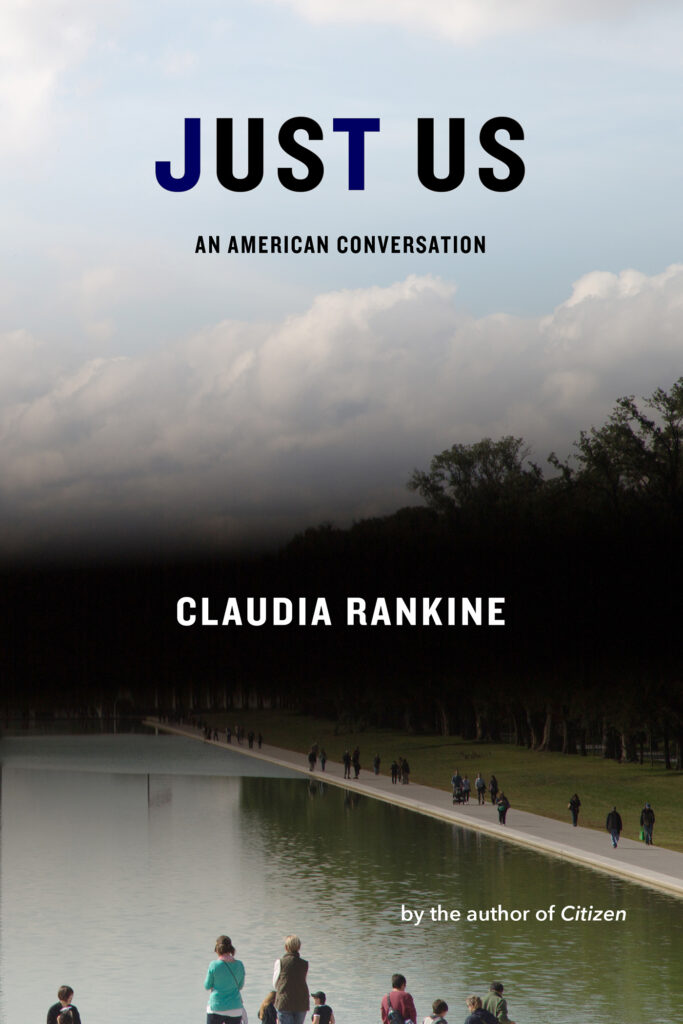
“Just Us is an invitation to discover what it takes to stay in the room together, even and especially in breaching the silence, guilt, and violence that follow direct addresses of whiteness.” – Yale University
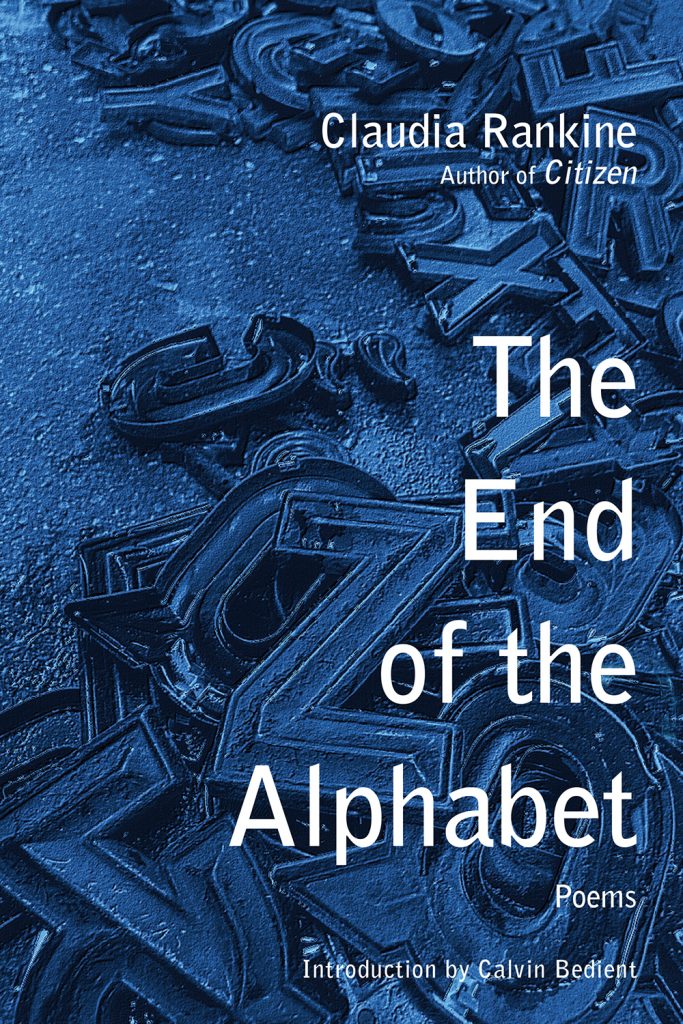
“The moral vision of Claudia Rankine’s poetry is astounding. In a body of work that pushes the boundaries of the contemporary lyric, Rankine has managed to make space for meditation and vigorous debate upon some of the most relevant and troubling social themes of the twentieth and twenty-first centuries. Maintaining a firm grasp upon the tools we normally associate with the lyric poet, such as associative shifts and leaps, allusion, sonic agility, elegy, and a deep and – 2 – resonant imagery, Rankine’s poems also foster a quite nearly cinematic sense of suspense, striking notes of urgency, anxiety, and momentous inevitability. “
-Rachel Schduer – Poets and Writers, Inc.’
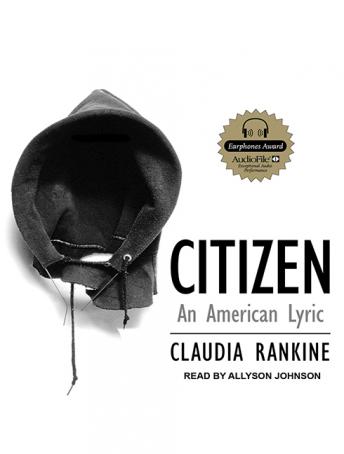
“It’s a stylistically daring poetic project about the dehumanization of those deemed outsiders – we found it exhilarating and genuinely transformative.” – Al Kennedy – Judge for Forward Prize for Poetry

“Claudia Rankine here manages an extraordinary melding of means to effect the most articulate and moving testament to the bleak times we live in I’ve yet seen. It’s master work in every sense, and altogether her own.” – Robert Creely
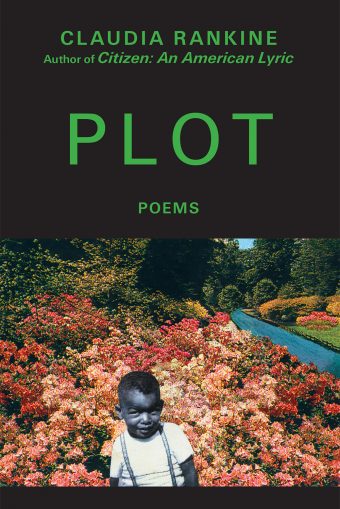
“A startling and eloquent exploration of states in, about, and around
maternity. . .. This is an unsettling poetry of the body wrestling itself in the making of thought.” –Charles Bernstein
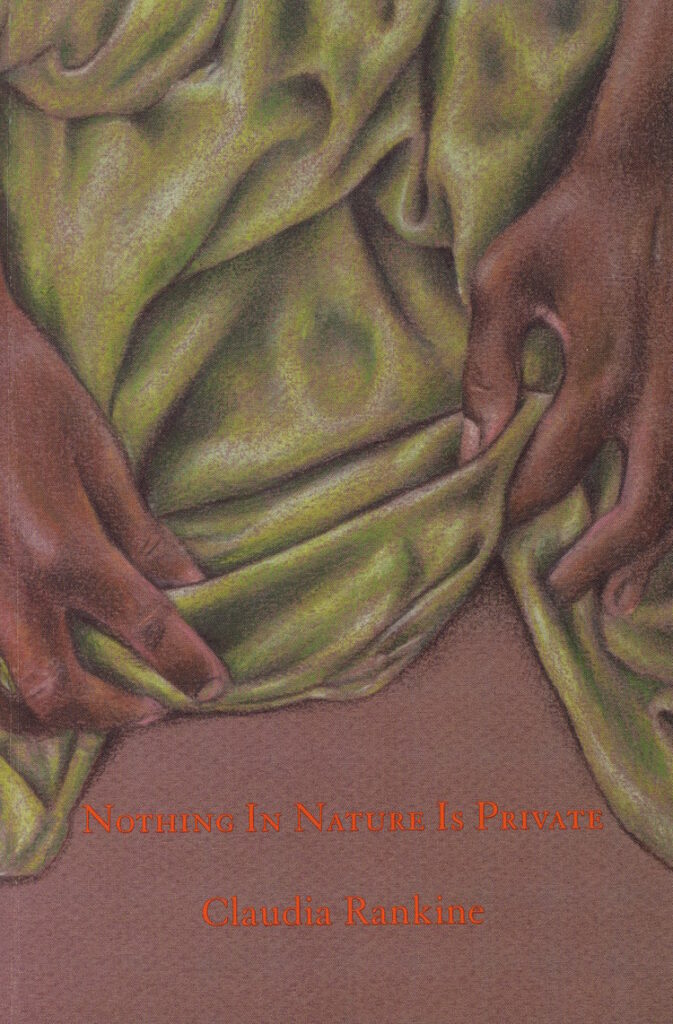
“Claudia Rankine is a fiercely gifted young poet. Intelligence, a curiosity and hunger for understanding like some worrying, interior, physical pain, a gift for being alert in the world. She knows when to bless and to curse, to wonder and to judge, and she doesn’t flinch. Nothing in Nature is Private is an arrival. It’s the kind of book that makes you hopeful for American poetry.” –Robert Hass
Notable Quotes and Statements by Rankine:
Rankine on Why Her Poetry Focuses Beyond the Day-to-Day:
“Systemic problems have infiltrated the mind so that when someone asks the white policeman who shoots someone, ‘Why did you shoot him in the back?’ his answer is ‘I don’t know.’ Many of them say, ‘I don’t know,’ and it’s because they’re being propelled forward by some imaginary conception of being under attack when they’re not under attack.”
Rankine on Why She Studies Whiteness:
“It’s important that people begin to understand that whiteness is not inevitable, and that white dominance is not inevitable.”
“Conceptions and constructions of whiteness,” she explained, have been “made and then propped up with eugenics and propped up with false science and false rhetoric and maintained through the justice system in every way”. They then become invisible. As writers and artists, she said, “it’s our job to point this out, because I really believe that people don’t know” – about what makes whiteness, or about how broad the life experiences of white people are.”
Rankine on Lyric Poetry:
“I think of the lyric as creating a meditative space. There’s such a desire to separate our political and social condition from our domestic and private space. To me, they’re intertwined; what’s happening in the government determines where you live, how you live, who your neighbors are, how much money you have in the bank. I wanted to bring the entire political and social condition into a lyric meditative space.”
Rankine on Repeating Motifs in Don’t Let Me Be Lonely:
“One of the ways you bring politics into Don’t Let Me Be Lonely is through repeating motifs. You keep returning to an image from a news clip about Amadou Diallo and Abner Louima, two victims of police brutality in the late ‘90s. In our normal daily life, that image wouldn’t be lingered on. The news would switch to another topic or we would change the channel. You refuse to change the channel.”
Critical Response and Praise for Rankine’s Work:
“Rankine announced that she would use the money from her recently bestowed MacArthur “Genius” Grant to help establish the Racial Imaginary Institute in Manhattan, a brick-and-mortar extension of the original project where artists will present talks, read essays, host podcasts, and exhibit work focused on race and the creative imagination. She is currently fund-raising while scouting locations on the Lower East Side, in Chelsea, and in SoHo, and envisions the institute as a mobile enterprise, headquartered in New York City with pop-ups and satellites all over the country, and maybe even the world.” – Lauretta Charlton – The New Yorker
“Claudia Rankine’s book may or may not be poetry – the question becomes insignificant as one reads on. Her achievement is to have created a bold work that occupies its own space powerfully, an unsettled hybrid – her writing on the hard shoulder of prose.” – Kate Kallaway – The Guardian
“Don’t Let Me Be Lonely (Graywolf, 2008) —a multi-genre project that blends poetry, essays, and image—is an experimental and deeply personal exploration of the condition of fragmented selfhood in contemporary America.” – John Lucas – Los Angeles Times
“Generally, in lyric poems, we expect the past to return with uncanny vividness in the changed context of the present. You could argue that poetry is precisely about this return of the past, its many formal technologies—rhyme, meter, repeated verse and stanza forms—designed to make such recurrences possible and meaningful. In Rankine’s work, the past has never receded in the first place. The needle is stuck, so the tune is lost.” – Dan Chiasson – The New Yorker
“Claudia Rankine’s Don’t Let Me Be Lonely brought forth the American lyric as a new form of lyric essay with a specific purpose: redefining poetic form as a reaction to a world redefining its values and cultural preoccupations. The lyric form allows for stream-of-consciousness anxieties and social commentaries to flow freely, attacking head-on the faults of American society in a multimedia manner.” – Sarah Johnson – Medium.com
“Essentially, Rankine turns the traditional form of prose into an imagistic stream of consciousness, to reflect the narrator’s dissolving sense of self throughout.* The recurrence of the television in particular, places the media as a prime factor behind an increasingly numb and isolated American society.” – Postscript Magazine
“The sadness is not really about George W. or our American optimism; the sadness lives in the recognition that a life can not matter. Or, as there are billions of lives, my sadness is alive inside the recognition that billions of lives never mattered. I don’t know, I just find when the news comes on I switch the channel.” – The Boston Review
“Rankine’s suggestion that the end of history is now a kind of disposable waste (“salvation narratives are passé”) turns her thoughts in a different direction, to the burdens of history, especially the burden of racial violence and its repercussions in the emotional lives of those who witness it. Much of Don’t Let Me Be Lonely struggles with this problem, which we might describe as the struggle to give meaning to broken lives, or meaning to death, in a context where historical hope seems passé, and where its becoming passé is explicitly linked to its having ballooned into an empty spectacle.” – Christopher Nealon – ModernAmericanPoetry.com
Awards Rankine has received include by are not limited to:
John Simon Guggenheim Fellowship for Poetry (2017)
Grants that are awarded to those who have demonstrated exceptional capacity for productive scholarship or exceptional creative ability in the arts.
Bobbit National Prize for Poetry (2016)
Awarded in recognition for the most distinguished book of poetry written by an American and published during the preceding two years.
MacArthur Fellowship (2016)
Awarded to individuals who have shown extraordinary originality and dedication in their creative pursuits and a marker capacity for self-direction.
Forward Prize (2015)
Celebrates excellence in poetry and increasing its audience.
NAACP Image Award (2015)
Honors outstanding performances in film, television, music, and literature.
Los Angeles Times Book Prize (2015)
Annual award for outstanding work in the category of poetry.
PEN Center USA Poetry Award (2015)
Honors outstanding voices in translation, fiction, poetry, science writing, essay, sports writing, biography, children’s literature, and drama.
Jackson Poetry Prize (2014)
Honors an American poet of exceptional talent.
National Book Critics Circle Award (2014)
Promotes the finest books and reviews published in English.
Academy of American Poets Fellowship (2005)
Recognizes distinguished poetic achievement.